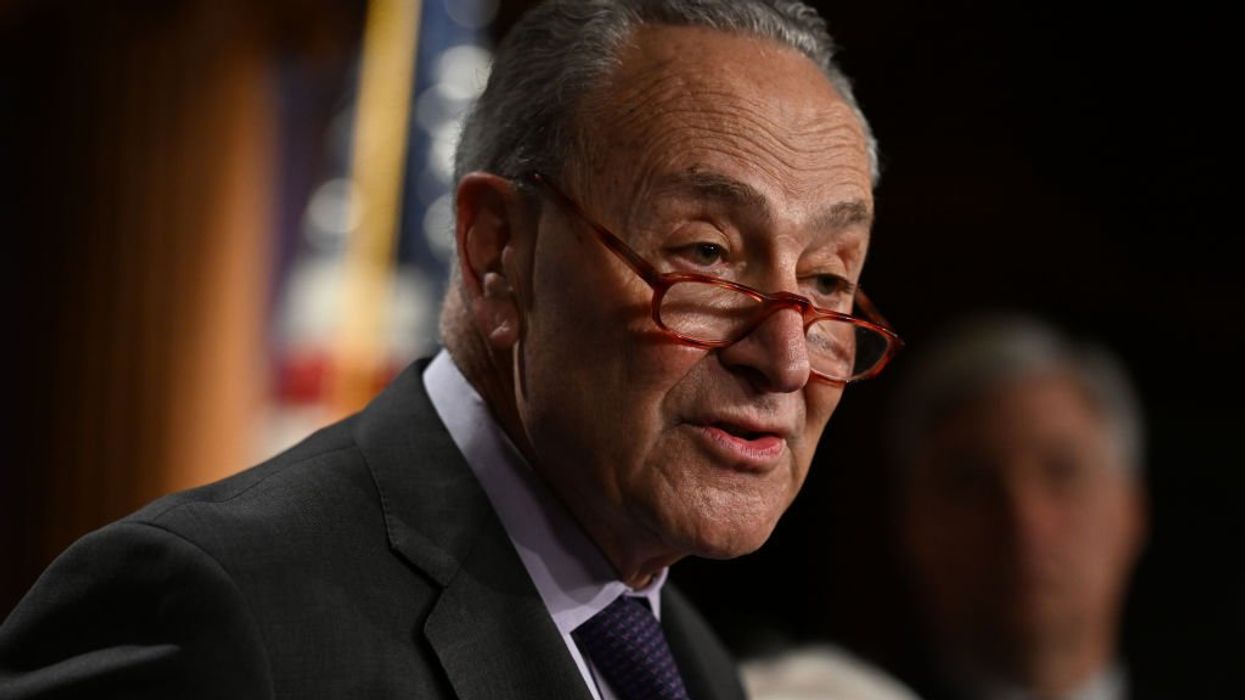
Photo by Ricky Carioti/The Washington Post via Getty Images

To the chagrin of a gang of Democratic lawmakers keen to preserve emergency powers in the name of "consistency," the resolution, first introduced by Republican Rep. Paul Gosar (Ariz.) passed the Senate without amendment by a Yea-Nay vote of 68-23.
Facing significant Democratic opposition, it previously passed the House on February 1 in a 229-197 vote.
Sen. Tommy Tuberville (R--Ala.) noted Thursday, "The national emergency gave the government unprecedented power over our lives. Those days are coming to an end."
The Democrats and lone independent who opposed the executive's relinquishment of emergency powers were:
It will now go to President Joe Biden for ratification. A White House official has indicated that Biden will ultimately sign it into law, reported the Hill.
"The President strongly opposes HJ Res 7, and the administration is planning to wind down the COVID national emergency and public health emergency on May 11. If this bill comes to his desk, however, he will sign it, and the administration will continue working with agencies to wind down the national emergency with as much notice as possible to Americans who could potentially be impacted," said the official.
In January, the White House stated, "If the PHE were suddenly terminated, it would sow confusion and chaos into this critical wind-down. ... Due to this uncertainty, tens of millions of Americans could be at risk of abruptly losing their health insurance, and states could be at risk of losing billions of dollars in funding."
The Associated Press noted that Biden's forthcoming ratification of the resolution will be the second time in recent weeks the president has signed legislation he previously made a big show of opposing.
On March 20, he signed into law a resolution to block a radical Washington, D.C., crime bill, disappointing many of the 173 Democrats who had voted against it in Congress.
White House officials indicated that Biden's latest acquiescence has much to do with timing, granted the resolution was initially set to deprive the executive branch of the wide-reaching powers, which it had temporarily enjoyed, back in February.
Biden was aiming for May 11 as the date on which to wind down the national COVID emergency status.
Rep. Dan Kildee (D-Mich.) told The Hill that Biden's apparent about-face was "frustrating"; at best an "unacceptable lack of clarity in their message to us."
"This is a problem," added Kildee.
Rep. Lloyd Doggett (D-Texas) said, "I find it surprising and I'd like to see a little more consistency."
Democratic Rep. Rick Larsen (Wash.) said in January that ending the emergency "would be harmful and irresponsible."
Like Blaze News? Bypass the censors, sign up for our newsletters, and get stories like this direct to your inbox. Sign up here!